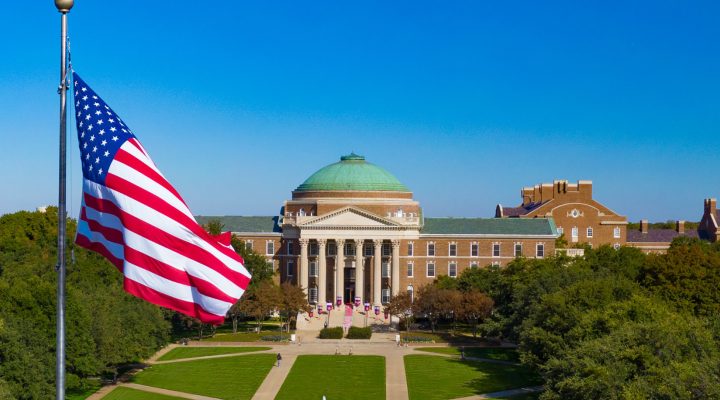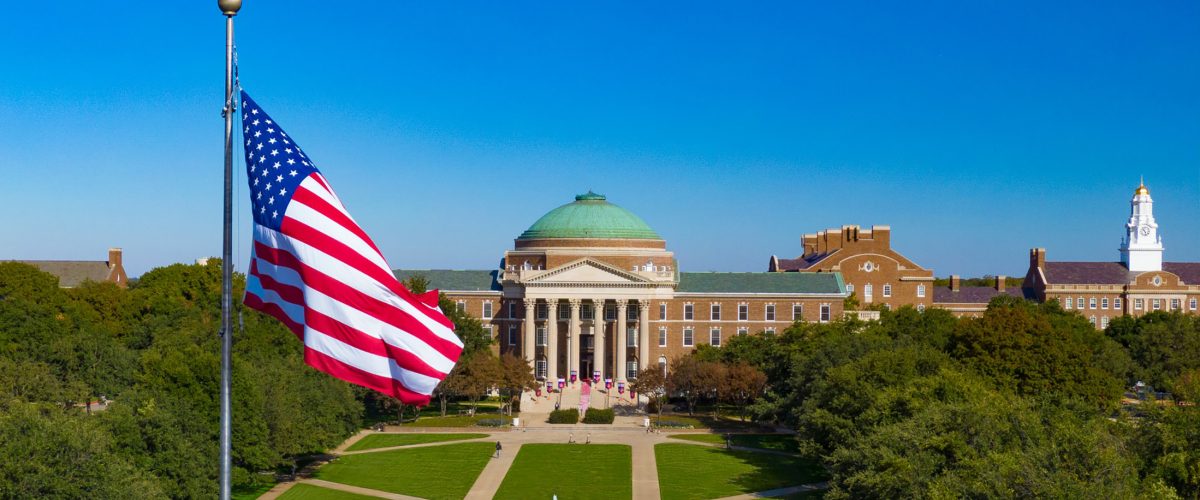A five-year-old dispute between Southern Methodist University in Dallas and a multi-state United Methodist Church body over the university’s ownership and governance will come before the Texas Supreme Court for oral arguments Jan. 15.
According to a summary on the Texas Supreme Court’s website, the case first filed in December 2019 by the UMC’s eight-state South Central Jurisdiction now centers on “whether a nonmember nonprofit corporation may amend its articles of incorporation when those articles provided that no amendments shall be made without the prior approval of a religious conference.”
The summary continues: “Since its founding, the university’s articles of incorporation stated that it was to be owned, maintained and controlled by the (South Central Jurisdiction) Conference and that the conference possessed the right to approve all amendments. In 2019, without the conference’s approval, the university’s board of trustees amended its articles to remove these provisions and filed a sworn certificate of amendment with the secretary of state. The conference sued the university, seeking declaratory relief and asserting breach of contract, promissory estoppel, breach of fiduciary duty, and a statutory claim alleging that the university filed a materially false amendment certificate.”
In layperson’s language, the fight is over who owns the nonprofit private university and has the authority to set its rules.
The fight is over who owns the nonprofit private university and has the authority to set its rules.
A Texas district judge ruled in favor of SMU in 2021, dismissing the conference’s lawsuit with prejudice. The conference appealed, and Texas’ Fifth Court of Appeals reversed the dismissal in July 2023. Three appellate judges ruled that South Central Jurisdiction, as SMU’s “controlling parental entity,” retained standing to challenge the university’s bylaws change from 2019.
SMU president R. Gerald Turner and trustees sought to distance the university from the UMC in November 2019 after a special General Conference in February 2019 reaffirmed the church’s anti-LGBTQ policies and enacted harsher penalties for their violation. Turner orchestrated a revision of the university’s bylaws to separate it completely from South Central’s oversight. The jurisdiction filed a lawsuit a month later, and the matter has been in and out of court ever since.
Turner told the Dallas Morning News in December 2019 the university was “preemptively” distancing itself from the UMC ahead of an expected split over its LGBTQ discrimination. Turner said then the Texas secretary of state gave SMU permission to revise its bylaws, citing new policies allowing nonprofits to be administered fully by their boards of directors. Turner said then that SMU wanted to “continue to educate everybody from all Methodist denominations and from other denominations and from people who don’t believe at all.”
Turner said then he was especially concerned about Perkins School of Theology, one of the UMC’s 13 official seminaries, being able to educate future religious leaders of any denomination. Currently Perkins’ website claims 350 students, 40 faculty and 25 staff in Dallas and its Houston-Galveston Extension Program. Areas of academic concentration include Baptist studies and nondenominational African American Church studies.
Since the lawsuit was launched in 2019, the United Methodist Church has lost 7,600 local congregations in the dispute over LGBTQ inclusion. A breakaway denomination, the Global Methodist Church, held its convening conference in September 2024 in Costa Rica.
Meanwhile, the reason for SMU’s bylaws change that sparked South Central Jurisdiction’s lawsuit has evaporated. The UMC’s General Conference voted overwhelmingly in May 2024 to eliminate all its anti-LGBTQ laws and policies. The UMC’s new Book of Discipline, with all previous anti-LGBTQ policies eliminated, went into effect Jan. 1.
Related article:
Lawsuit between SMU and UMC is headed to court again


